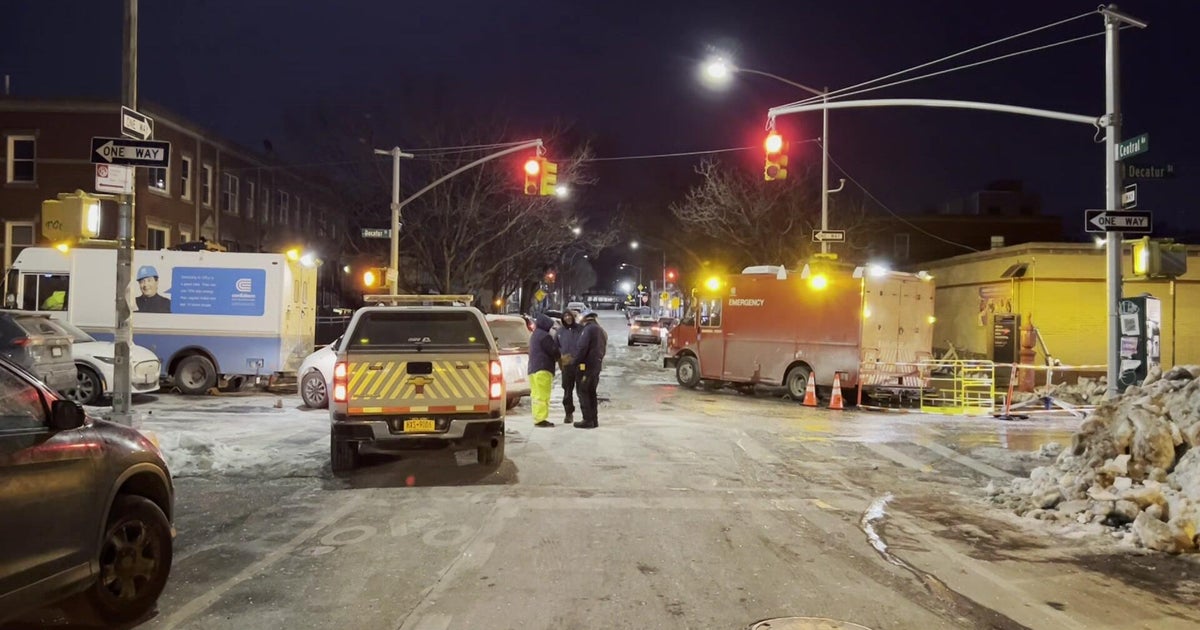Utilities are cutting off power to millions of Americans amid rising energy costs
A growing number of Americans are getting their power shut off, as rising costs of living force consumers to choose between keeping the lights on and paying for food, rent or transportation.
Last year, utilities cut off power to an estimated 4.2 million households, according to a report released this week from the Center for Biological Diversity, the Energy and Policy Institute and BailoutWatch. The estimate is conservative because only some states reveal information about utility cutoffs. The authors used the cutoff rate from those states to estimate a nationwide figure.
In states the report tracked, electricity shut-offs increased nearly 30% from 2021 to 2022, while gas cutoffs rose 76%.
The rising numbers of cutoffs are a confluence of two factors: Higher energy costs partly caused by Russia's invasion of Ukraine nearly a year ago, as well as the end of pandemic-era protections that barred utilities from shutting off service for nonpayment. The cost of electricity has risen 21% since 2021, while the cost of gas has shot up nearly 50% in that time, according to the Bureau of Labor Statistics.
"Access to electricity is a basic human right. People rely on electricity for water, physical safety, food security, medical care and telecommunications," the report said. "Without power, people struggle to maintain employment, keep their kids in school, and even stay alive."
Today, 1 in 6 U.S. families are in arrears on utility bills, according to the National Energy Assistance Directors' Association. Families are "drowning in utility debt," NEADA wrote this week, noting that demand for help with heating bills is currently at its highest level since 2009.
Consumer protections end
The Center for Biological Diversity report blames another factor for the large numbers of utility cutoffs: Corporate greed. At the same time that utilities shut off power to millions of households, they spent billions of dollars on dividends for their shareholders, noted Selah Goodson Bell, a campaigner with the Center for Biological Diversity.
"It would have taken only 1% of the amount spent on shareholder dividends to prevent these shut-offs," he said. "People have to sacrifice essential life-sustaining services to pay for those bills while utility executives and shareholders continue to line their pockets."
- Oil giants rake in record profits as energy prices remain high
- One state wants to cut food-stamp spending. Their plan: Ban fresh meat, flour and butter.
- SNAP benefits returning to pre-pandemic levels
In 2021, many of these utilities were prevented from dumping nonpaying customers by state-level moratoriums. Most of those prohibitions expired at the end of that year, leading utility cutoffs to jump in several northeastern states. Utilities in Connecticut performed nearly 59,000 cutoffs last year, up from 153 in 2021, while New York cut off 41,000 households last year after zero cutoffs in 2021.
The months in which utilities were forced to keep providing power to nonpaying customers didn't appreciably cut into their profits, the report found. The 45 companies it examined took in $184.8 billion in profits in 2021, a 71% increase from 2020. Even in 2020, the toughest of the pandemic years, only four utilities lost money, the report found.
Illinois, Georgia top the list
Of the states that the report tracked, Illinois topped the list, with the state's two investor-owned electricity companies shutting off power 284,000 times last year. (There were an additional 84,000 gas shut-offs.) They were followed by Pennsylvania and Georgia, each with 198,000 shut-offs, then Michigan, with 166,000.
The report notes that Florida, which stopped reporting shut-off data late in 2021, cut off customers' power 557,000 times that year.
Utility bills are often the among the largest that households pay, behind mortgage or rent and auto loans, according to bill-pay service Doxo — and in the heating season, they are critical.
"[W]hile people may be able to forgo some other types of bills, at least for a month or two, the utility bill is crucial, particularly when you're thinking about having heat in the dead of winter," Liz Powell, the company's director of insights, said in an email.
Campaigners at the Center for Biological Diversity and Energy and Policy Institute are calling for a ban on electricity cutoffs, and for states and localities to tighten restrictions on companies that benefited from federal aid during the pandemic.
"The public service commission does determine what protections you have as a consumer — a winter moratorium [on shutoffs], or protections for vulnerable populations or low-income people," said Shelby Green, a campaigner at the Energy and Policy Institute.
"The final piece of the puzzle is for utilities, or even the government, to forgive debt balances," she added. "There are a lot of people who accrued debt during the pandemic and aren't able to pay off the debt. But the local government, utilities themselves, they all received funding from the American Rescue Plan."



